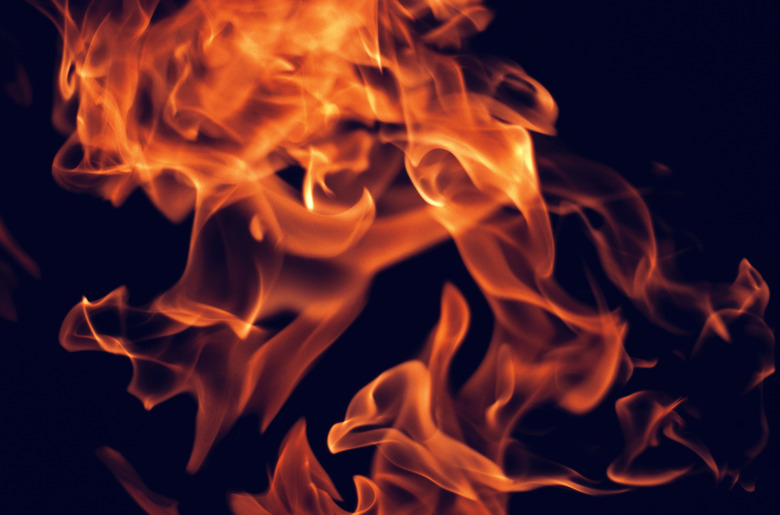What Are Examples Of An Increase In Entropy?
The entropy of a chemical system depends on its energy and its multiplicity, or how many different ways its atoms and molecules can be arranged. By adding new arrangements or energy, you increase entropy. A diamond, for example, has low entropy because the crystal structure fixes its atoms in place. If you smash the diamond, entropy increases because the original, single crystal becomes hundreds of tiny pieces that can be rearranged in many ways.
Examples from Chemistry
Examples from Chemistry
Burning wood illustrates an increase in entropy. The wood starts as a single, solid object. Fire consumes the wood, releasing energy along with carbon dioxide and water vapor, and leaving a pile of ashes. The atoms in the vapors and gases vibrate energetically, spreading out in an ever-expanding cloud. Dissolving salt in water is another example of increasing entropy; the salt begins as fixed crystals, and the water splits away the sodium and chlorine atoms in the salt into separate ions, moving freely with water molecules. A chunk of ice has low entropy because its molecules are frozen in place. Add heat energy and entropy increases. The ice turns to water, and its molecules agitate like popcorn in a popper.
References
Cite This Article
MLA
Papiewski, John. "What Are Examples Of An Increase In Entropy?" sciencing.com, https://www.sciencing.com/examples-increase-entropy-8797/. 24 April 2017.
APA
Papiewski, John. (2017, April 24). What Are Examples Of An Increase In Entropy?. sciencing.com. Retrieved from https://www.sciencing.com/examples-increase-entropy-8797/
Chicago
Papiewski, John. What Are Examples Of An Increase In Entropy? last modified March 24, 2022. https://www.sciencing.com/examples-increase-entropy-8797/
